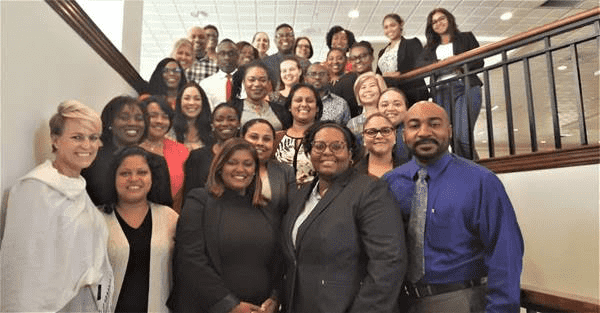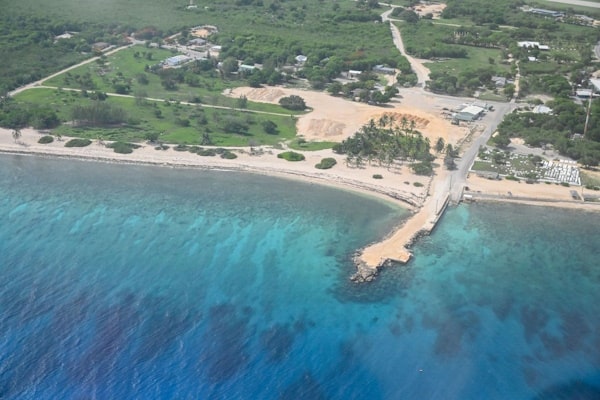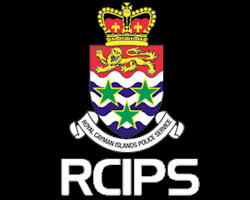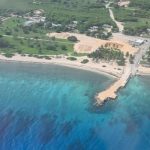Gov’t presses on to meet CFATF requirements

(CNS): Alongside the raft of legislation government has drafted to address the gaps in Cayman’s regime for combating financial crime identified in a report last year, it is continuing with an intensive training programme for all stakeholders. Trainers for the Caribbean Financial Action Task Force (CFATF) visited earlier this month to guide supervisors here through what they need to be doing to meet the recommendations made in the peer review.
While Cayman insists its offshore sector is extremely well regulated, there are still vulnerabilities there and across other previously unregulated sectors.
Glenda Leben, Supervision Advisor for CFATF, led the session organised by Cayman’s Anti-Money Laundering Unit (AMLU), which was created last year to deal with these shortcomings and ensure that Cayman is not blacklisted as global standards continue to change and demands on transparency increase. Leben has extensive experience in financial services and regulatory compliance, including AML/CFT. She is also a Certified Anti-Money Laundering Specialist.
She explained the key definitions of money laundering, terrorist financing, proliferation financing, the role of CFATF and the forty recommendations made for Cayman to improve the regime and the outcomes it wants to see. One of the main points is the role of supervisors in the financial and other relevant sectors here to combat global financial crime that could be happening in this jurisdiction
“Immediate Outcome 3 requires supervisors to appropriately supervise, monitor and regulate financial services and DNFBPs – designated non-financial businesses and professions – for their compliance with AML/CFT requirements. And this compliance is to be in line with their respective risk profiles,” Leben said, according to a release from the financial service ministry.
DNFBPs include lawyers, accountants, realtors, dealers in precious metals and stones, and trust and company service providers.
Cayman’s AML/CFT regime is headed by Attorney General Samuel Bulgin, who told those who took part that supervisors’ roles in the global fight against these financial crimes cannot be overstated.
“The supervisor is the preventative axis in this entire endeavour, hence the importance and timeliness of this training,” he said during his opening remarks for the sessions, as he encouraged supervisors here to collaborate on their compliance efforts.
The UK and Canada funded the training, which was one of many sessions, seminars and workshops government agencies are hosting to meet the 40 recommendations from CFATF.
The session was attended by anti-money laundering staff from the Cayman Islands Monetary Authority as well as representatives from the Cayman Attorneys Regulatory Authority, Cayman Islands Institute of Professional Accountants, Department of Commerce and Investment, Registrar of Companies, and AMLU.
- Fascinated
- Happy
- Sad
- Angry
- Bored
- Afraid
Category: Business, Crime, Crime Prevention, Financial Services




































CIMA needs to be completely overhauled. All of the dinosaur leadership at the top of CIMA should be removed. They have created a culture at CIMA where all of the client facing Analysts and Senior Analysts are not given enough information to do their jobs properly. The frontline people ALWAYS need to consult senior management before answering even the most simple request. Send an email to any analyst at CIMA and you get a generic “The Authority has received your request and will respond in due course”. Send an email to one of the group inboxes (Licensing, Terminations, etc.) and you’ll get an auto reply email that doesn’t even reference your request, therefore you have no way to document that CIMA has received your request or is even looking at it. Call ANYBODY at CIMA. Voicemail. Leave a message, and good luck of ever getting a call back! One afternoon during the busy yearend season, I called 8 CIMA direct phone lines. Every single one went to voicemail. Now I’m not blaming the Analysts. No, I blame senior management. It is the typical strategy of keeping everyone under you underinformed, so that YOU will always have a job! Inept, unprofessional and OUTDATED MANAGEMENT STYLE!!
The CFATF’s National Risk Assessment identified “theft, corruption and drug trafficking” as the predominant generators of domestic proceeds of crime. From 2012-2014 there were 67 corruption Suspicious Activity Reports filed, of which only 4 investigated and 3 convictions related to corruption. What have we done since 2012-2014, or in the last year to plug the gaping holes?
CFATF’s 5th of 6 “Recommended Actions” was for the membership of the Anti Money Laundering Steering Group and the Inter-Agency Coordination Committee to be strengthened (do we even have these?), by including the Anti-Corruption Commissioner, given the risk of corruption to the jurisdiction. Further, an appropriate operational coordination mechanism was to be established with appropriate membership to identify and support policy development as well as facilitate operational coordination.
Many of the powers in Section 5 of the yet to be enacted Standards in Public Life Law would be helpful, particularly as they relate to the ACC and RCIPS FCU. If we want to start down the path to end corruption in the Cayman Islands, voters will need to petition the Governor to enact the amended SIPL Law. Investigations can begin thereafter, not before.
Those serving the public can’t continue to ignore their obligations to stamp out corruption. The complicity has to end.
Canada funded training…that’s rich. The same Canada that welcomes all-forms of crime…errr “business”…by disbanding the RCMP’s specialized Financial Crimes Unit last week. 128 officers and 9 civilians, covering Money laundering, Terror financing, and Drug and mafia crime files, were all laid off! Canada barely passed their last cautionary FATF checkup in 2016, and hasn’t had a review since! It’s estimated that over $100Bln a year in corrupt proceeds and money laundering are “snow-washed” via willing professional real estate syndicates and Canadian-resident smurf nominees. Chinese PEPs are openly buying multi-million dollar properties using their government Union Pay credit cards, to get around the USD$50k/yr currency controls. Canada has no UBO registry of any kind, and no plans for one. ISED doesn’t even check annually for corporate compliance on the good standing of their companies vis a vis CBCA. 90% of all junior mining, venture, and cannabis companies are listed in Canada without anyone looking over the shoulder to supervise governance…it’s left to duped shareholders who don’t have any easy mechanism to register a complaint. Nearly never happens. Glad they sent us the “experts” on how to shape us up! I guess that’s the least they could do to say thank you as the hot money capital of the planet.
The Canadian officers and civilians are not laid off, they are reassigned to other units.
But they were laid off from investigating money laundering. That is the point being made.
7:09 you are bang on with your analysis about Canada. As a Canadian, I am ashamed the way both the Harper and Trudeau Governments have looked the other way when there is clearly money laundering in Canadian real estate from the Chinese and the Russians.
The latest money laundering scandal is that absolutely no one knows who owns the multi million dollar mansion Prince Harry is staying at with his family on Vancouver Island. Even the locals have no idea who owns the property. A Chinese oligarch? Russian oligarch?
Many say it is laundered money from outside of Canada through a numbered company.
The scale of Cayman laundered money in our real estate is miniscule compared to Canada.
Blind leading the blind.